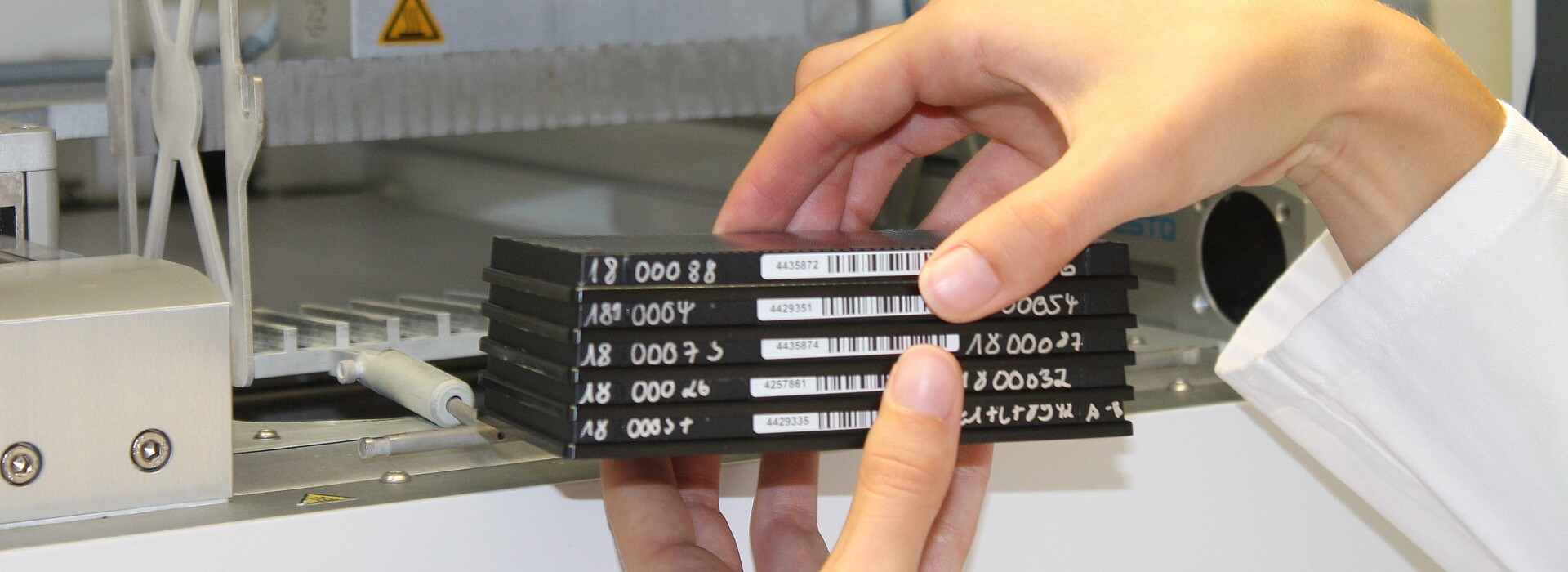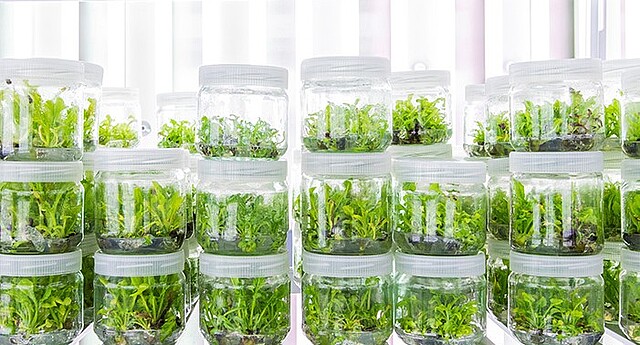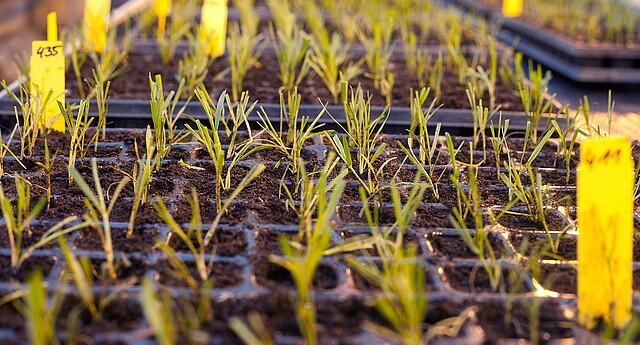Accelerated process through innovative technolog

An important basis of all breeding progress is the selection of individual plants with improved traits from large numbers of cross progenies. For many of these traits, the genes or their locations within the plant genome have been identified.
Variation within the DNA of genes or gene loci that correlates with different phenotypes (appearances) of the plant, e.g. susceptibility or resistance to a disease, can be used as "molecular markers". By use of these markers it is possible to predict the performance of a plant pertaining to specific traits without the need for lengthy and laborious disease resistance tests or other performance trials in the greenhouse and in the field.
Marker applications in our breeding programs include marker-assisted selection with specific markers for individual traits such as disease resistances as well as genome-wide selection methods in support of breeding for complex traits such as yield. In our continuous efforts to develop new markers to tackle current or future breeding challenges we use genetic, genomic and bioinformatic research approaches.




